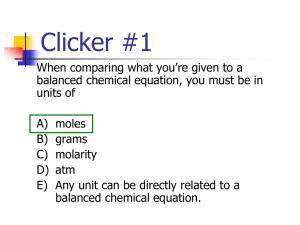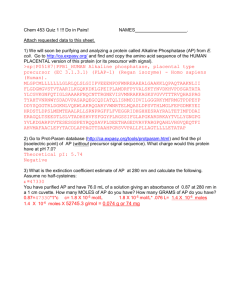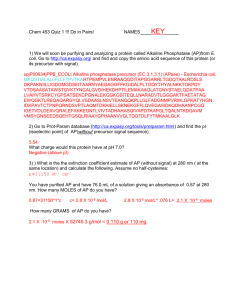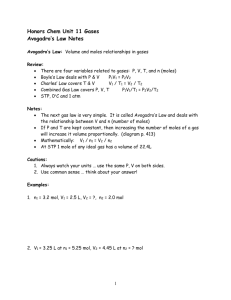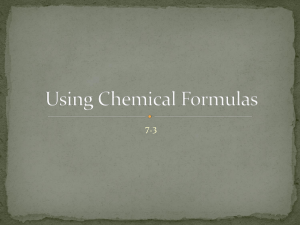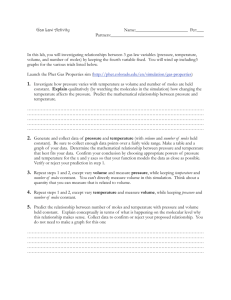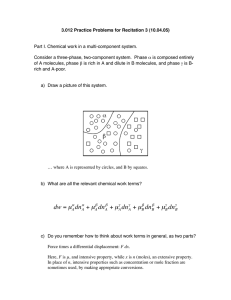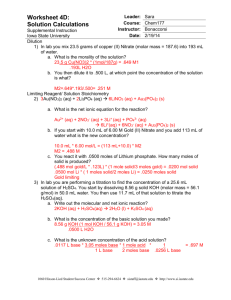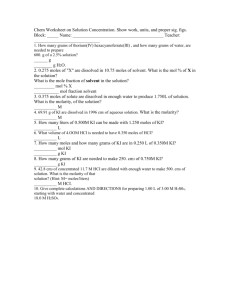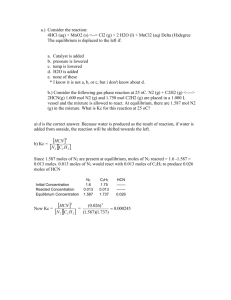Accuracy and Precision
advertisement
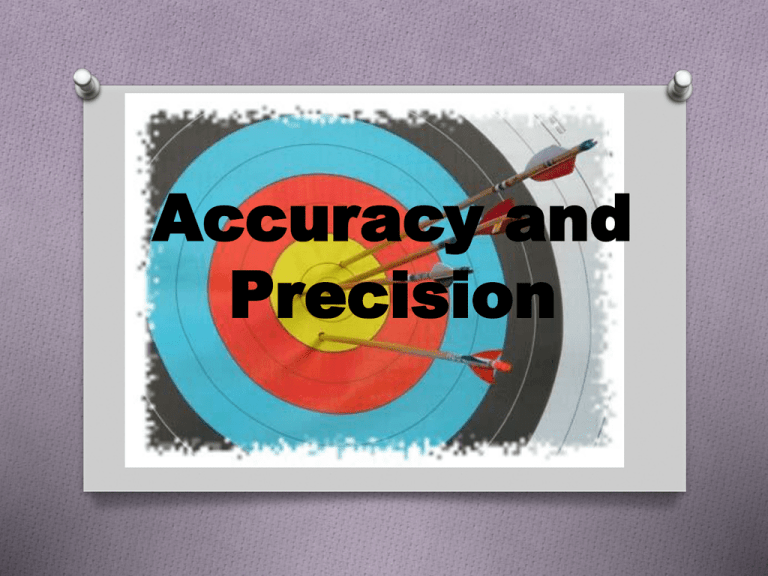
Accuracy and Precision Accuracy O refers to how close a measured or calculated value is to the correct or accepted value of the quantity measured O the closer the darts land the the bull’s eye the more accurate they are thrown Precision O refers to how close repeated measurements of the same quantity are to each other O the closer the darts land to one another the more precisely they were thrown Accuracy and Precision O Scientists repeat measurements as a way to reduce uncertainty. If a number of measurements are very close to one another, they have good precision and the scientist can be assured that the average of the measurements is likely close to the actual value (accurate) Percent Error Percent Error O the accuracy of an individual value or of an average experimental value can be compared quantitatively with the correct or accepted value by calculating percent error The Ideal Gas Law The Ideal Gas Law O a gas sample can be characterized by four quantities: O volume O pressure O temperature O moles O moles (mol) is a unit that scientists use to measure the mass of an object O 3.00 moles of little green peas would cover 250 planets the size of Earth 1.00 m deep in green peas O 1.00 mole of basketballs would fill a bag the size of the Earth O the ideal gas law is the mathematical relationship among pressure, volume, temperature, and the number of moles of a gas O in the ideal gas law the constant R is known as the ideal gas constant O R= 0.082058 L x atm / (K x mol)
